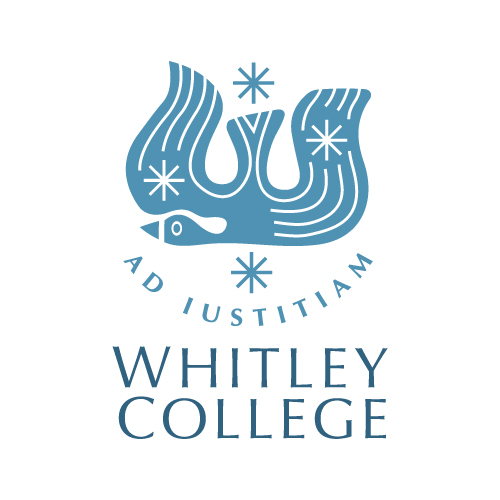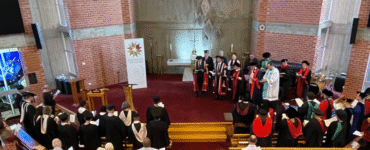This article is reposted from ABC Religion and Ethics
Alongside the very many responses elicited by the coronavirus pandemic, there have emerged some profound questions for faith: what might it mean to speak in this context of a loving God who has created the world and who continues in relationship with all creatures, human and non-human, through the depths of suffering, uncertainty, exploitation and death? One set of answers might be found in the renewing of pastoral care, and in reviving the ancient practices of lament. These are welcome responses. Current circumstances also invite — even demand — deeper reflection on some of the Christian faith’s most basic speech about the relationship between creation and Creator.
A few churches in the United States have attracted new notoriety by meeting together against the advice of public health officials, even presenting such dissidence as a mark of true faith. But what kind of faith is this exactly? On the other hand, some pastoral leaders have become all too aware of the immediate challenges, and have left the theological questions to one side. One might be left with the impression that the church has nothing to say about some of the most pressing questions that many people continue to dare to ask. Especially when faith has been built on the conviction that God always, or usually, intervenes on behalf of the faithful, some questions are simply too pressing to ignore.
Is creation good?
The opening chapter of the Bible repeatedly affirms God’s pleasure in the created order. Creation is said to be “good” no less than six times in Genesis 1, before the narrative rounds off with “very good” (Genesis 1:31). This beautiful beginning has been repeatedly emphasised by ecological theologians lamenting the obvious signs of distress in the life of our planet. Climate change and the loss of biological diversity have been attributed mainly to human agency and hubris.
Beyond the sphere of human evil, we encounter the enduring problem of so-called “natural evil,” which has provoked agonised theological reflection in many generations before us. Typically, this means discussions about such things as volcanoes, cancers, tsunamis and plagues. Following the devastating All Saints Day earthquake in Lisbon in 1755, Voltaire wrote Candide, which famously framed a satirical critique of the philosophical idea — earlier proposed by Gottfried Wilhelm Leibniz in his Theodicy from 1710 —that God had created the best of all possible worlds.
Something like the threat of “natural evil,” however, appears to precede creation even in the narrative of Genesis 1: “the earth was a formless void and darkness covered the face of the deep.” Here we are reminded that creation may not be creatio ex nihilo (creation out of nothing), as many theologians argue, but rather creatio ex profundis (creation out of the deep waters, creation as the germinating abyss). So read, we might think of creation as God’s protest against chaos — against the “churning, complicating” and “interstitial darkness” that “refuses to disappear” and which ceaselessly threatens to undo God’s “good” work by dragging creation back into the discord against which it was formed.
However we read such a text (like Genesis 1:2), it serves to remind us of the precariousness of God’s good creation. Our attention has been turned in recent months to the so-called Spanish flu (the first known case of which appeared in Kansas in March 1918) that apparently infected nearly a third of the world’s population by 1920, causing an estimated twenty million deaths. So COVID-19 has its predecessors, and we are certainly not the first generation to encounter global suffering of this kind. Yet we continue to affirm God’s pleasure in the created order, and our own wonder. Is this because of what we read in Genesis 1? No, that is not the reason. The sublime in nature can speak for itself. And within the biblical narrative, a number of world-changing events have transpired since the goodness of creation was birthed in its vegetarian utopian conditions (Genesis 1:29–30).
Most Christian theologians tend to find the first great alienation of creation in “the Fall” – as narrated in Genesis 3. But Jewish traditions, with a stronger emphasis on the enduring tension between divine promising and human choosing, have directed more attention to the story of the Flood. That is where we find God grieving over the consequences of human sin, even to the point of “repenting” of the original creation, and regretting, in particular, the human element within it (Genesis 6:5–7). The flood then comes as an answer to human violence — a frightening recompense with only one glimmer of hope: Noah and his shipload of biodiversity.
Does the created order after the flood attract divine pleasure? Does God see it as “very good,” as suggested in Genesis 1:31 when describing the original condition? No. The first covenant in the Bible — the covenant with Noah’s family and all the creatures with them — seems very limited. It is a promise not to unleash another flood on that scale. And one of the warnings delivered within this covenant is ominous: instead of bringing judgment on all creation with a flood, God will keep track of all the bloodshed on the earth (Genesis 9:1–6).
In short, whether we read these chapters of Genesis through Christian or Jewish eyes, the created order cannot be described as an unqualified good; it is mixed. As the English biologist T.H. Huxley — otherwise known as “Darwin’s Bulldog” — reported some 130 years ago:
[T]here is amazingly little evidence of “reverential care for unoffending creation” in the arrangements of nature that I can discover. If our ears were sharp enough to hear all the cries of pain that are uttered by men and beasts, we should be deafened by one continuous scream! And yet the wealth of superfluous loveliness in the world condemns pessimism. It is a hopeless riddle.
Life might be better described as a struggle, punctuated both with joys and sorrows, each in their own season. On this fundamental point, even the Apostle Paul can apparently agree with the most sceptical preacher in the book of Ecclesiastes. No matter how earnestly the laws of Moses proclaim a doctrine of reward and punishment, meted out for good and bad behaviour, the sceptical minds of Ecclesiastes and Job deny any correlation. While it is true that nature has her own laws, as the book of Job insists, these are not designed for the maximising of human benefits (Job 38–39). The same judgment would count against any triumphalism or prosperity gospel in a Christian guise.
Indeed, it certainly seems, as one theologian has suggested, that “suffering is especially a problem for the person who believes, or who wants to believe in God.” Faith does not — cannot — answer, solve, or remove the questions arising from our mixed experience of the created order. Rather, as both the books of Job and of Ecclesiastes bear witness, faith intensifies the questions and their difficulties, both existentially and theoretically. There can be no argument that struggle and ambiguity is hardwired into the fabric of human existence, or even that certain aspects of what we call suffering — loneliness, experience of limits, temptation, temporality, anxiety, even death — are inescapable features of human existence. Such realities stand as a challenge to any easy designation of creation as “good.”
What is the nature of human responsibility?
The prophets of Israel plunge their readers into a tension. On the one hand, human actions have a bearing on the health of creation, so that sin can have the effect of unwinding things and, for example, causing the earth to “mourn” (Hosea 4:1–3; Jeremiah 4:28). Humans carry a heavy responsibility. On the other hand, there is a persistent strain of hope that is attached especially to Mount Zion. For example, in Isaiah 11:6–9 and 65:25, the poetry imagines a happy concourse between lions and lambs on this holy mountain. An Edenic peace between all creatures returns, mainly through divine action, it seems.
Actually, for most of the Hebrew Bible, it is a case of “both-and” — divine and human agency. This is captured by a key verse in the book of Isaiah: “Observe justice and maintain right order, for my salvation is near, and my right order is to be revealed” (Isaiah 56:1). Human action needs to meet with the divine action; this is a partnership rather than a matter of divine imposition. We might also need to acknowledge, however, that this tension has been preserved more in Jewish than in Christian traditions. The idea of a messianic “fix” has historically undermined the Christian resolve to care for the earth.
However, even if we accept that creation is a joint venture, the problem of natural evil does not evaporate. There are evils at work that are not of human hands, even when we conspire to enhance their effects. Thus it might be tempting once again to blame God: is it God who ultimately created this disaster? Or even to blame the creation itself, and so understand COVID-19, for example, as the good creation’s resistance to its most destructive creature.
What good news?
Experience suggests that the natural world behaves according to its own laws. Its ecological systems are, in significant respects, self-organising. This is the kind of message that modern science has delivered, and some might conclude that this scientific view of the world conflicts fundamentally with the Bible. But such a conclusion would be mistaken. Most notably perhaps, the divine speeches in Job 38–39 insist that non-human creatures have their own laws, and that their unpredictable interactions, like viral mutations, are not designed for the maximising of human benefits. In sum, the natural world has its own divinely-given freedoms, which naturally — yes, naturally — lead to violence, sickness and suffering.
Most of us may be aware at some level of Job’s discomforting gospel, but the picture of God as an imperial figure who regularly intervenes in nature somehow persists. Whole churches, it seems, have never heard of the book of Job, or perhaps they ignore such unsettling Old Testament discourse because it has been trumped by some version of apocalyptic theology. We seem to have little patience for a God who travels with people through deserts and exiles with ever new offers of covenantal relationships that require accountability. Even death on a Roman cross, in this impatient theology, is simply a means to an end. It could not be an enduring revelation of the character of God. As if perhaps, in the crucifixion of Jesus, God was just faking weakness, was not really thirsty and abandoned at all.
We would do well to remember that death was not wholly removed from the picture of a “new heavens and new earth” in Isaiah 65:17–24. There, the prophetic vision sets out a minimum life expectancy of a hundred years, so that children will not be “born into calamity.” In short, this text does not promote a heavenly immortality; the new earth still very much means the renewing of our own.
If we find miraculous healings in the New Testament, these are exceptional signs that can point in hopeful directions. But miracles do not reveal the character of creation as it is. Rather, they point to a world for which we hope, and this pattern of hope was already expressed in Isaiah 35:5–7, which pictures an earthly redemption:
Then the eyes of the blind shall be opened,
and the ears of the deaf unstopped;
then the lame shall leap like a deer,
and the tongue of the speechless sing for joy.
For waters shall break forth in the wilderness,
and streams in the desert;
the burning sand shall become a pool,
and the thirsty ground springs of water;
the haunt of jackals shall become a swamp,
the grass shall become reeds and rushes.
We cannot say that this world simply appears by divine imposition. According to Isaiah, human participation in the justice of God is still required, as already pointed out. What we can say, however, is that God stands firstly with the less-abled among us, and with the poor, inviting them to participate — indeed, to offer leadership — in a new society. The Spirit of God calls the rest of us, the privileged, to new practices of solidarity.
What kind of hope?
As the discussion above makes plain, the Bible makes no effort at all to shy away from the tragic. From the story of creation’s genesis against the backdrop of primordial chaos to the seemingly-indiscriminate annihilation of life caused by a global flood; from the promise of a nation’s birth out of Sarah’s barren womb to Israel’s brutal creation from the bowels of cruel bondage in Egypt; from the violence that marked Israel’s establishment in Canaan and their disestablishment at the time of the Babylonian exile to their life in Roman-occupied Palestine; from Herod’s most unpoetic massacre of the innocents to the suicide of guilt-ridden Judas; from the state-sanctioned murder of a blameless rabbi to the cries of faithful martyrs hiding under the altar desperate for their blood to be avenged “on the inhabitants of the earth” (Revelation 6:10).
The Bible’s narratives are inextricably and unavoidably bound up with suffering, violence and death. And its pages, rich in tragic tropes, offer no univocal attitude to such, nor consensus about their causes or purposes. Indeed, the various authors and editors of its texts betray a diversity of theologies and interpretations on this subject, as on most others.
The Bible is honest about human suffering in this world, whether it be that of the “righteous” and the “devout” or that of the “sinful” and “unrepentant.” It is equally honest about the sheer fact of dis-ease in the world. And it dares to suggest that God is somehow personally involved in creation’s experience of suffering and evil. And in Jesus Christ we are given to see what has always been true of the God of Israel —that God takes up the human cry and makes it to be God’s own. To join in the life of God is to take up the cry and to find communion in shared suffering.
As Rowan Williams puts it, “Mere resignation is a betrayal; structuring and explanation is a blasphemy.” Whether inspired by Jesus or Job, we are called to protest. We must not resign ourselves to the world as it is. To do so would represent a denial of what has been promised. And so we live betwixt and between. We indeed live in the longest of days, in Holy Saturday — in the space between the memory, trauma and absolute end called “Good Friday,” and the expectant promise of the Easter that is always before us. As Kevin Taylor and Giles Waller write:
The experience is neither one of nihilism, nor one of bland optimism. It is one in which we learn the difference between optimism and hope, in which we are only able to hope for the best by confronting the worst.
If we seek inspiration from the Hebrew Bible and New Testament in this present crisis, we would not expect God to intervene like a cosmic President, to declare emergency powers and veto the freedoms of the ecological systems within which all creatures live. Rather, we would look to the God who always chooses to act in solidarity, who quietly calls us to act freely as better human beings — fellow creatures with the earth — and to embody the justice of God in every area of our lives together.
The COVID-19 pandemic has unveiled once again the inequalities of our world. This is not the fulfillment of apocalyptic prophecies — like those in the Book of Revelation, for example — but it is certainly a new unveiling of what has been termed “slow violence.” Our planet continues to burn, and our seas continue to acidify. Patterns of production and consumption continue to despoil the resources needed by future generations. A new world is calling, for which we need a fuller understanding of creation.
Mark Brett is Professor of Hebrew Bible at Whitley College, University of Divinity. Jason Goroncy is Senior Lecturer in Systematic Theology at Whitley College, the University of Divinity, Melbourne.

Whitley College is a college of the University of Divinity from the Baptist tradition, based in Melbourne, Victoria.






Add comment